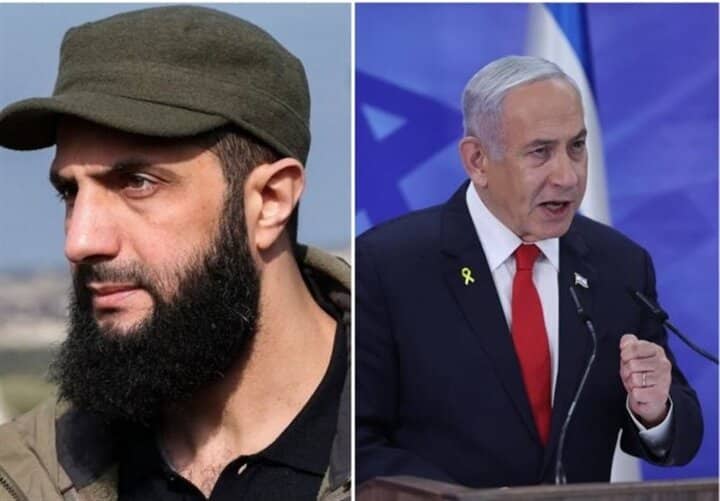Power of Tel Aviv and Damascus from normalization to the bombings.
The founders of the Zionist regime believed that Israel’s establishment in the Middle East region was an unintegrated entity with the conditions of the region and that the survival of the regime depended on the effort to integrate with the region. Therefore, Tel Aviv’s ruling apparatus has always regarded the security of the Zionist community as weakening and disintegrating the surrounding countries and even considers compromise treaties with some of its neighbors as a temporary ceasefire to deal with other fronts of war and demolition so that it can later settle its accounts with the countries it has compromised. An example of this has happened many times in Lebanon, Egypt, and the Palestinian Authority.
The Zionists use three basic factors to achieve their goal.
– widespread gap in the Arab community
– Reduce the influence of regional powers
– Unlimited Western support
Tel Aviv’s negotiation with Syria from a position of power
Over the past two decades, internal clashes in some countries have endangered the concept of national security, and some Arab societies have been plagued by civil war and unprecedented sectarian divisions that have destroyed the security and political infrastructure of some fundamental governments in the region.
In this regard, the new Syrian regime began ineffective relations with the Zionist regime. Tel Aviv, which did not see any threat from Damascus as a result of the new regime in Syria, did not consider itself to be a privilege to Damascus, as Syria had virtually moved out of the axis of resistance by moving power last December.
Syria was no longer Israel’s rival since then, but it was an area for setting up and sending various messages. Under this situation, the Syrian army, which was eroded during the five years of war, lost its infrastructure, and many army forces were dismissed.
Key to normalization from Azerbaijan
Since the fall of Bashar al-Assad’s government, the Abu Muhammad al-Julani regime has shown various signals about the major developments in Syrian political discourse and their readiness to open and normalize relations with the Zionist regime, which previously included some regimes, such as Bahrain, the UAE, and Morocco.
During the first half of the year, regional and European mediators took steps to establish a channel of communication between Damascus and Tel Aviv. Existing reports have shown that the new Syrian regime is not only ready to sign a compromise agreement with the Zionist side but is also ready to recognize the territorial integrity of the Zionist regime on the occupied Golan on the condition of economic guarantees in reducing or lifting Western sanctions. US President Donald Trump’s envoy to the Middle East and his envoy to Syria, Thomas Barack, were likely to start indirect talks between the two sides on border issues.
The Julani trip to Azerbaijan recently was the culmination of these efforts. Azerbaijan, as the ally of Recep Tayyip Erdoğan, has announced its readiness to send gas to Syria. It also supplies 5% of the gasoline used in the occupied territories and is the most important and strategic partner of the Zionist regime among the countries with a Muslim majority. Azerbaijan, even during the rape of the Zionist regime in Gaza, has not always been supported by Tel Aviv.

